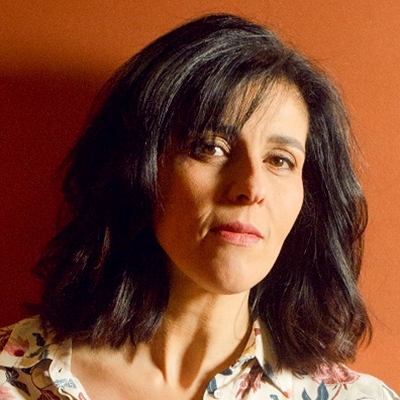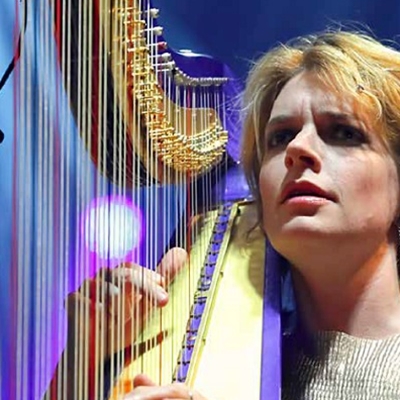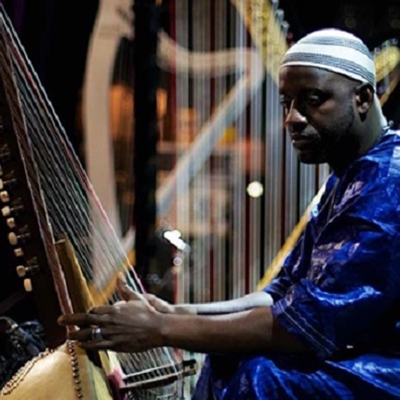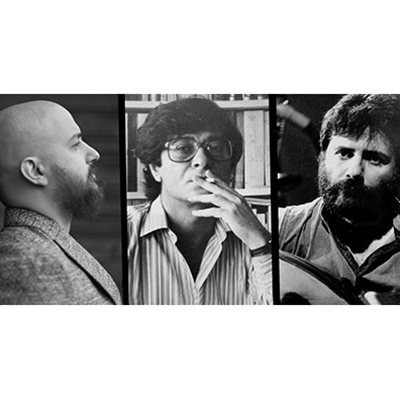Hay Festival Abu Dhabi 2020 Programme
Music
Event 8
Oumniya ('My wish') marks the great comeback of Souad Massi, the Algerian chaâbi-folk icon. Her sixth album is anchored in current events, covering Algeria, politics, love, freedom and emancipation. Massi plays an Algerian mandole, the main instrument of châabi and Kabyle music, creating a light, melodic folk, balanced with pop, and adds an Arab-Andalusian violin (Mokrane Adlani) and the derbouka (Rabah Kalfa) with Latin drums (Adriano Tenorio). She weaves genres together, as in popular Algerian songs (châabi) and the poetry of Aït Menguelet, champion of the Kabyle resistance, with touches of reggae and fado. Oumniya (which addresses the pain of betrayal), is the first of thirteen songs, most of them sung in Arabic and written by Algiers-born Massi.

Event 12
Formed during a late-night jam session at the American University of Beirut in 2008, Mashrou’ Leila have become one of the biggest bands from the Middle East. Renowned for their electro-pop anthems, they return to the UAE with their distinct approach to storytelling and orchestration, drawn from their collective experiences of modern Arab youth identity.

Event 24
This mesmerising duo has been hailed as the “most popular world music act of the decade”. Together Welsh harpist Catrin Finch (Official Harpist to the Prince of Wales from 2000 to 2004) and Senegalese kora player Seckou Keita create a musical marriage of culture that is breathtaking. Their multi-award-winning sound is a joyous, ethereal and hypnotic homage to their countries' diverse cultures. The result is something so extraordinary it can only be described as magic. Their collaborative album Soar won ‘Best Fusion’ Album in the Songlines Music Awards 2019.
Event 38
The poet, playwright, performer and designer is one of the most celebrated contemporary creators in the UK for the wide-ranging nature of his work. He is a Member of the Royal Society of Literature and an ambassador for the Ministry of Stories, an organisation that fosters the potential of 8- to 18-year-olds as writers. After publishing four poetry books and receiving the Fringe First Prize at the Edinburgh International Theatre Festival for his first play The 14th Tale, Ellams sold out his run at the National Theatre and on the world tour with Barber Shop Chronicles. His most recent play, The Half God of Rainfall, a work in verse that mixes Greek, Nigerian and basketball mythology, opened in March 2019 to great critical acclaim. In addition to his intense graphic and literary output, Ellams has founded The Midnight Run, an urban tour from dusk to dawn, and RAP parties that combine poetry slam with urban music. He talks to Peter Florence about how his work crosses disciplines and themes, such as identity, migration and coexistence.

Event 41
Bachar Mar-Khalifé appears on stage with his father Marcel Khalifé, the renowned Lebanese composer, oudist and singer, in a musical tribute to his friend the great Palestinian poet Mahmoud Darwish. It was by singing Darwish's poetry at the beginning of his career that Marcel Khalifé reached international acclaim, far beyond the Arab world.
Marcel Khalifé is a virtuoso of the oud. He studied and taught at Beirut Higher Conservatory of Music. He performed on the world’s greatest stages and with the world’s great orchestras. In 2005, he was named UNESCO Artist for Peace. With the Al Mayadine ensemble, which he founded in Lebanon in 1976, he combined Arabic and Western instruments, performing instrumental compositions and sung poetry. Darwish’s poems remain the most famous works in Khalifé’s repertoire. Mixing Arab music traditions with jazz and electro, Bachar Mar-Khalifé invites his illustrious father and an instrumental ensemble to revisit this unique collaboration between poet and musician.
Marcel Khalifé – oud & vocal; Bachar Mar-Khalifé – conception, piano and vocal; Nenad Gajin – electric guitar; Anthony Millet – accordion; Sary Khalifé – cello; Aleksander Angelov – bass; Dogan Poyraz – percussion.


